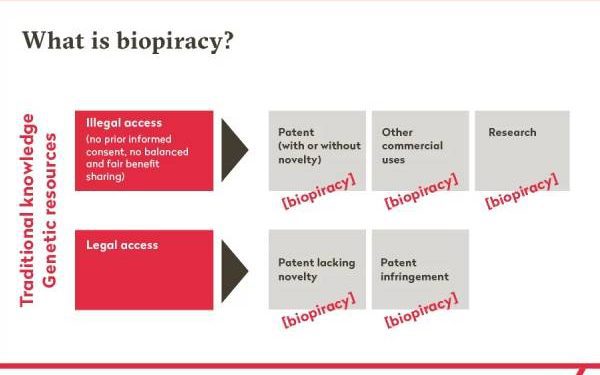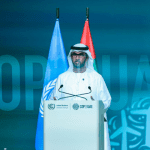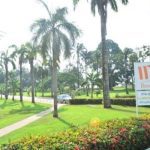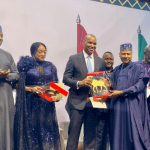A group of African nations has called for a sanctions regime as talks have opened on a landmark treaty aimed at putting an end to “biopiracy”.
The United Nations opened the debate on Monday in Geneva with a view to finalising the treaty, which aims to prevent the plundering of genetic resources and traditional knowledge surrounding them.
After more than 20 years of negotiations, the UN’s World Intellectual Property Organization (WIPO) hopes to conclude an agreement that will protect such knowledge from exploitation by enforcing greater transparency in the patenting system.
The draft treaty text says patent applicants would be required to disclose which country the genetic resources in an invention came from and who the Indigenous people are who provided the associated traditional knowledge.
While natural genetic resources, such as those found in medicinal plants, crops and animal breeds, cannot be directly protected as international property, inventions developed using them can be.
As the talks opened, the group of African countries called for sanctions to be applied on companies or countries that infringe the provisions of the treaty.
Because it is currently not mandatory to publish the origins of innovations, many developing countries are concerned patents are being granted that either circumvent the rights of Indigenous people or are issued for existing inventions.
Opponents of the treaty fear it will hamper innovation. However, proponents say additional disclosure requirements would increase legal certainty, transparency and efficiency in the patent system.
A group of African nations has called for a sanctions regime as talks have opened on a landmark treaty aimed at putting an end to “biopiracy”.
The United Nations opened the debate on Monday in Geneva with a view to finalising the treaty, which aims to prevent the plundering of genetic resources and traditional knowledge surrounding them.
After more than 20 years of negotiations, the UN’s World Intellectual Property Organization (WIPO) hopes to conclude an agreement that will protect such knowledge from exploitation by enforcing greater transparency in the patenting system.
The draft treaty text says patent applicants would be required to disclose which country the genetic resources in an invention came from and who the Indigenous people are who provided the associated traditional knowledge.
While natural genetic resources, such as those found in medicinal plants, crops and animal breeds, cannot be directly protected as international property, inventions developed using them can be.
As the talks opened, the group of African countries called for sanctions to be applied on companies or countries that infringe the provisions of the treaty.
Because it is currently not mandatory to publish the origins of innovations, many developing countries are concerned patents are being granted that either circumvent the rights of Indigenous people or are issued for existing inventions.
Opponents of the treaty fear it will hamper innovation. However, proponents say additional disclosure requirements would increase legal certainty, transparency and efficiency in the patent system.
A group of African nations has called for a sanctions regime as talks have opened on a landmark treaty aimed at putting an end to “biopiracy”.
The United Nations opened the debate on Monday in Geneva with a view to finalising the treaty, which aims to prevent the plundering of genetic resources and traditional knowledge surrounding them.
After more than 20 years of negotiations, the UN’s World Intellectual Property Organization (WIPO) hopes to conclude an agreement that will protect such knowledge from exploitation by enforcing greater transparency in the patenting system.
The draft treaty text says patent applicants would be required to disclose which country the genetic resources in an invention came from and who the Indigenous people are who provided the associated traditional knowledge.
While natural genetic resources, such as those found in medicinal plants, crops and animal breeds, cannot be directly protected as international property, inventions developed using them can be.
As the talks opened, the group of African countries called for sanctions to be applied on companies or countries that infringe the provisions of the treaty.
Because it is currently not mandatory to publish the origins of innovations, many developing countries are concerned patents are being granted that either circumvent the rights of Indigenous people or are issued for existing inventions.
Opponents of the treaty fear it will hamper innovation. However, proponents say additional disclosure requirements would increase legal certainty, transparency and efficiency in the patent system.
A group of African nations has called for a sanctions regime as talks have opened on a landmark treaty aimed at putting an end to “biopiracy”.
The United Nations opened the debate on Monday in Geneva with a view to finalising the treaty, which aims to prevent the plundering of genetic resources and traditional knowledge surrounding them.
After more than 20 years of negotiations, the UN’s World Intellectual Property Organization (WIPO) hopes to conclude an agreement that will protect such knowledge from exploitation by enforcing greater transparency in the patenting system.
The draft treaty text says patent applicants would be required to disclose which country the genetic resources in an invention came from and who the Indigenous people are who provided the associated traditional knowledge.
While natural genetic resources, such as those found in medicinal plants, crops and animal breeds, cannot be directly protected as international property, inventions developed using them can be.
As the talks opened, the group of African countries called for sanctions to be applied on companies or countries that infringe the provisions of the treaty.
Because it is currently not mandatory to publish the origins of innovations, many developing countries are concerned patents are being granted that either circumvent the rights of Indigenous people or are issued for existing inventions.
Opponents of the treaty fear it will hamper innovation. However, proponents say additional disclosure requirements would increase legal certainty, transparency and efficiency in the patent system.
A group of African nations has called for a sanctions regime as talks have opened on a landmark treaty aimed at putting an end to “biopiracy”.
The United Nations opened the debate on Monday in Geneva with a view to finalising the treaty, which aims to prevent the plundering of genetic resources and traditional knowledge surrounding them.
After more than 20 years of negotiations, the UN’s World Intellectual Property Organization (WIPO) hopes to conclude an agreement that will protect such knowledge from exploitation by enforcing greater transparency in the patenting system.
The draft treaty text says patent applicants would be required to disclose which country the genetic resources in an invention came from and who the Indigenous people are who provided the associated traditional knowledge.
While natural genetic resources, such as those found in medicinal plants, crops and animal breeds, cannot be directly protected as international property, inventions developed using them can be.
As the talks opened, the group of African countries called for sanctions to be applied on companies or countries that infringe the provisions of the treaty.
Because it is currently not mandatory to publish the origins of innovations, many developing countries are concerned patents are being granted that either circumvent the rights of Indigenous people or are issued for existing inventions.
Opponents of the treaty fear it will hamper innovation. However, proponents say additional disclosure requirements would increase legal certainty, transparency and efficiency in the patent system.
A group of African nations has called for a sanctions regime as talks have opened on a landmark treaty aimed at putting an end to “biopiracy”.
The United Nations opened the debate on Monday in Geneva with a view to finalising the treaty, which aims to prevent the plundering of genetic resources and traditional knowledge surrounding them.
After more than 20 years of negotiations, the UN’s World Intellectual Property Organization (WIPO) hopes to conclude an agreement that will protect such knowledge from exploitation by enforcing greater transparency in the patenting system.
The draft treaty text says patent applicants would be required to disclose which country the genetic resources in an invention came from and who the Indigenous people are who provided the associated traditional knowledge.
While natural genetic resources, such as those found in medicinal plants, crops and animal breeds, cannot be directly protected as international property, inventions developed using them can be.
As the talks opened, the group of African countries called for sanctions to be applied on companies or countries that infringe the provisions of the treaty.
Because it is currently not mandatory to publish the origins of innovations, many developing countries are concerned patents are being granted that either circumvent the rights of Indigenous people or are issued for existing inventions.
Opponents of the treaty fear it will hamper innovation. However, proponents say additional disclosure requirements would increase legal certainty, transparency and efficiency in the patent system.
A group of African nations has called for a sanctions regime as talks have opened on a landmark treaty aimed at putting an end to “biopiracy”.
The United Nations opened the debate on Monday in Geneva with a view to finalising the treaty, which aims to prevent the plundering of genetic resources and traditional knowledge surrounding them.
After more than 20 years of negotiations, the UN’s World Intellectual Property Organization (WIPO) hopes to conclude an agreement that will protect such knowledge from exploitation by enforcing greater transparency in the patenting system.
The draft treaty text says patent applicants would be required to disclose which country the genetic resources in an invention came from and who the Indigenous people are who provided the associated traditional knowledge.
While natural genetic resources, such as those found in medicinal plants, crops and animal breeds, cannot be directly protected as international property, inventions developed using them can be.
As the talks opened, the group of African countries called for sanctions to be applied on companies or countries that infringe the provisions of the treaty.
Because it is currently not mandatory to publish the origins of innovations, many developing countries are concerned patents are being granted that either circumvent the rights of Indigenous people or are issued for existing inventions.
Opponents of the treaty fear it will hamper innovation. However, proponents say additional disclosure requirements would increase legal certainty, transparency and efficiency in the patent system.
A group of African nations has called for a sanctions regime as talks have opened on a landmark treaty aimed at putting an end to “biopiracy”.
The United Nations opened the debate on Monday in Geneva with a view to finalising the treaty, which aims to prevent the plundering of genetic resources and traditional knowledge surrounding them.
After more than 20 years of negotiations, the UN’s World Intellectual Property Organization (WIPO) hopes to conclude an agreement that will protect such knowledge from exploitation by enforcing greater transparency in the patenting system.
The draft treaty text says patent applicants would be required to disclose which country the genetic resources in an invention came from and who the Indigenous people are who provided the associated traditional knowledge.
While natural genetic resources, such as those found in medicinal plants, crops and animal breeds, cannot be directly protected as international property, inventions developed using them can be.
As the talks opened, the group of African countries called for sanctions to be applied on companies or countries that infringe the provisions of the treaty.
Because it is currently not mandatory to publish the origins of innovations, many developing countries are concerned patents are being granted that either circumvent the rights of Indigenous people or are issued for existing inventions.
Opponents of the treaty fear it will hamper innovation. However, proponents say additional disclosure requirements would increase legal certainty, transparency and efficiency in the patent system.













